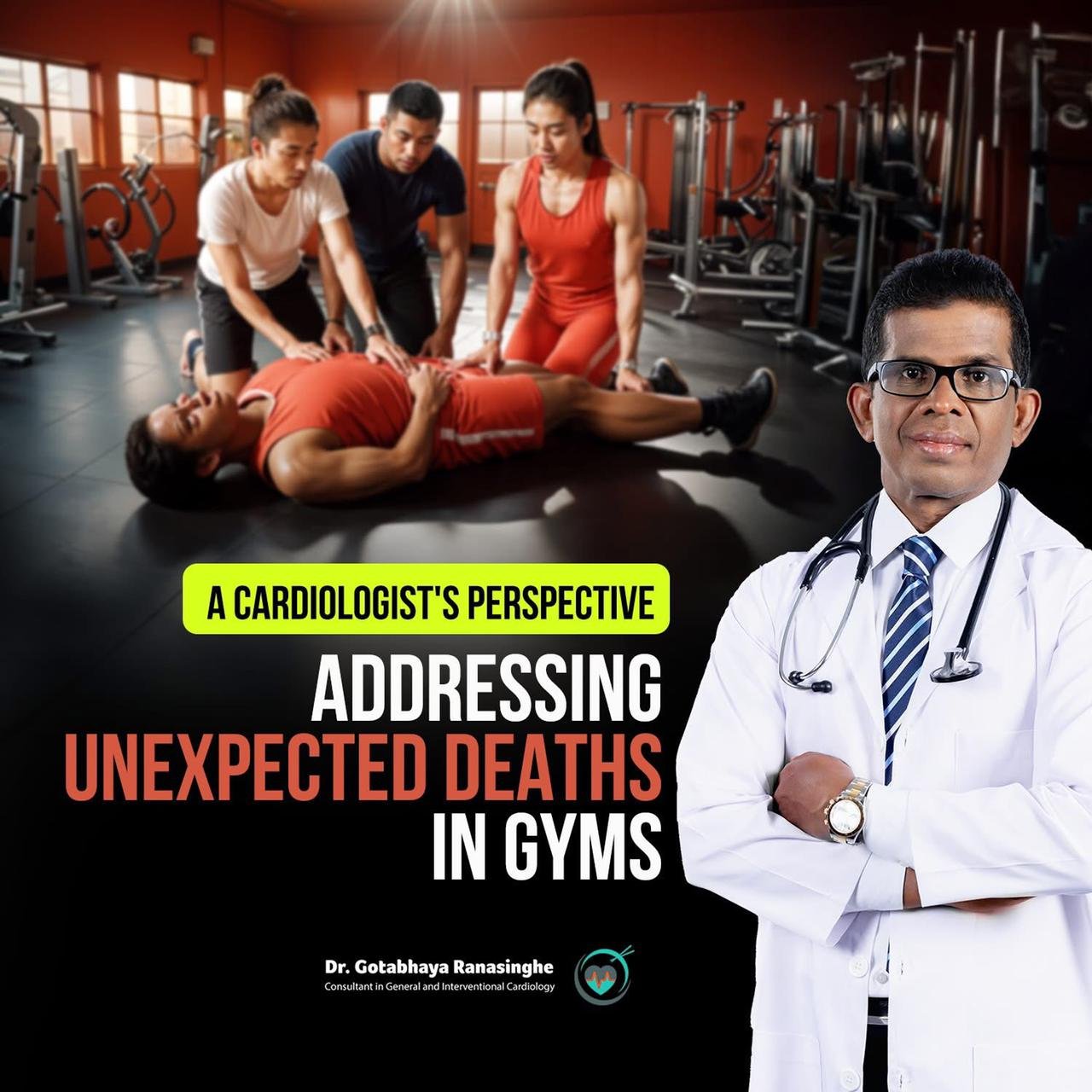As both a cardiologist and a fitness enthusiast, I’ve observed a troubling rise in fatal heart attacks among gym-goers, prompting a crucial discussion on heart health.
𝐌𝐢𝐬𝐜𝐨𝐧𝐜𝐞𝐩𝐭𝐢𝐨𝐧𝐬 𝐢𝐧 𝐅𝐢𝐭𝐧𝐞𝐬𝐬 & 𝐇𝐞𝐚𝐥𝐭𝐡:
It’s common for individuals to equate a fit physique solely with good health, often overlooking internal well-being. Regular exercise is beneficial, but it doesn’t guarantee immunity from heart disease. Internal health, including heart function, requires equal attention.
𝐔𝐧𝐝𝐞𝐫𝐞𝐬𝐭𝐢𝐦𝐚𝐭𝐢𝐧𝐠 𝐒𝐲𝐦𝐩𝐭𝐨𝐦𝐬 𝐚𝐧𝐝 𝐭𝐡𝐞 𝐅𝐞𝐚𝐫 𝐨𝐟 𝐃𝐢𝐚𝐠𝐧𝐨𝐬𝐢𝐬:
Many individuals, especially younger ones, dismiss symptoms such as chest discomfort or shortness of breath, believing heart issues only affect older adults. This misconception can lead to delayed medical consultations and missed opportunities for preventive care. Fear of uncovering health issues often deters people from routine check-ups crucial for the early detection and management of heart conditions.
𝐈𝐦𝐩𝐚𝐜𝐭 𝐨𝐟 𝐒𝐭𝐫𝐞𝐬𝐬 𝐚𝐧𝐝 𝐌𝐞𝐧𝐭𝐚𝐥 𝐇𝐞𝐚𝐥𝐭𝐡:
Chronic stress and poor mental health practices can profoundly affect heart health. Elevated stress hormones like cortisol and adrenaline can increase heart rate and blood pressure, contributing to inflammation and arterial damage over time. Managing stress through healthy coping mechanisms and seeking mental health support is essential for overall cardiovascular well-being.
𝐍𝐮𝐭𝐫𝐢𝐭𝐢𝐨𝐧’𝐬 𝐑𝐨𝐥𝐞 𝐢𝐧 𝐇𝐞𝐚𝐫𝐭 𝐇𝐞𝐚𝐥𝐭𝐡:
I frequently emphasize the importance of a balanced diet rich in fruits, vegetables, whole grains, and lean proteins. Diets high in processed foods, trans fats, and sugars negate the benefits of exercise and contribute to cardiovascular risk factors such as obesity, diabetes, high blood pressure, and high bad cholesterol (oxidized LDL). Adequate intake of essential nutrients supports heart function and reduces oxidative stress and inflammation.
𝐅𝐚𝐦𝐢𝐥𝐲 𝐇𝐢𝐬𝐭𝐨𝐫𝐲 𝐚𝐧𝐝 𝐆𝐞𝐧𝐞𝐭𝐢𝐜 𝐑𝐢𝐬𝐤𝐬:
Understanding one’s family history of heart disease or sudden death is pivotal. Genetic predispositions can significantly influence cardiovascular health. Armed with this knowledge, individuals can collaborate with healthcare providers to implement tailored preventive measures and undergo appropriate screenings.
𝐂𝐚𝐮𝐭𝐢𝐨𝐧𝐬 𝐨𝐧 𝐒𝐮𝐩𝐩𝐥𝐞𝐦𝐞𝐧𝐭𝐬 𝐚𝐧𝐝 𝐏𝐞𝐫𝐟𝐨𝐫𝐦𝐚𝐧𝐜𝐞 𝐄𝐧𝐡𝐚𝐧𝐜𝐞𝐫𝐬:
I’ve witnessed firsthand the dangers of excessive supplement use and performance-enhancing drugs on heart health. It’s crucial to consult healthcare professionals before starting any supplement regimen, prioritizing natural sources of nutrients whenever possible. Educating oneself on the potential risks and benefits of supplements is essential for making informed choices.
𝐁𝐚𝐥𝐚𝐧𝐜𝐢𝐧𝐠 𝐄𝐱𝐞𝐫𝐜𝐢𝐬𝐞 𝐚𝐧𝐝 𝐑𝐞𝐜𝐨𝐯𝐞𝐫𝐲:
Overtraining, characterized by excessive exercise without adequate rest, places undue stress on the cardiovascular system. Prolonged strain can lead to cardiovascular fatigue and increase the risk of arrhythmias or myocardial damage. Incorporating rest days and listening to one’s body are vital for sustaining long-term cardiovascular health alongside fitness goals.
𝐑𝐞𝐜𝐨𝐠𝐧𝐢𝐳𝐢𝐧𝐠 𝐖𝐚𝐫𝐧𝐢𝐧𝐠 𝐒𝐢𝐠𝐧𝐬:
Awareness of warning signs such as chest pain, shortness of breath, dizziness, fainting, or irregular heartbeat is crucial. Prompt medical attention can make a critical difference in managing heart conditions effectively.
𝐏𝐫𝐨𝐦𝐨𝐭𝐢𝐧𝐠 𝐏𝐫𝐞𝐯𝐞𝐧𝐭𝐢𝐯𝐞 𝐌𝐞𝐚𝐬𝐮𝐫𝐞𝐬:
Regular health check-ups, especially for those with a family history of heart disease, are essential for early detection and intervention. Seeking guidance from qualified fitness trainers and healthcare providers ensures safe and effective exercise routines tailored to individual health needs.
𝑪𝒐𝒏𝒄𝒍𝒖𝒔𝒊𝒐𝒏:
As a cardiologist passionate about fitness, I emphasize the importance of integrating heart health into fitness goals. Prioritizing holistic well-being, including mental health, nutrition, and prudent exercise, is key to fostering a healthy heart. Let’s empower ourselves with knowledge and proactive measures to safeguard our heart, the most vital organ.

